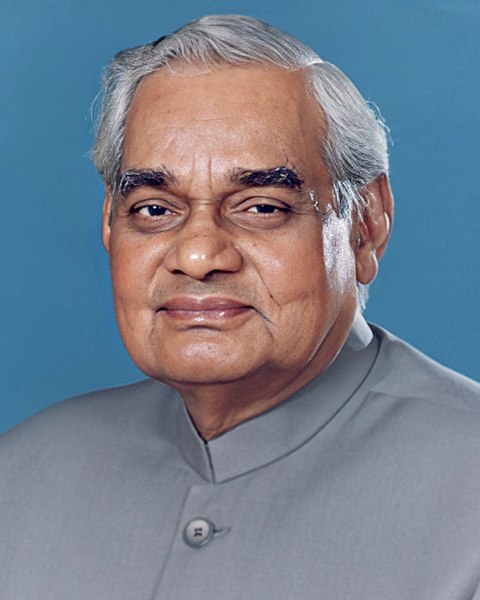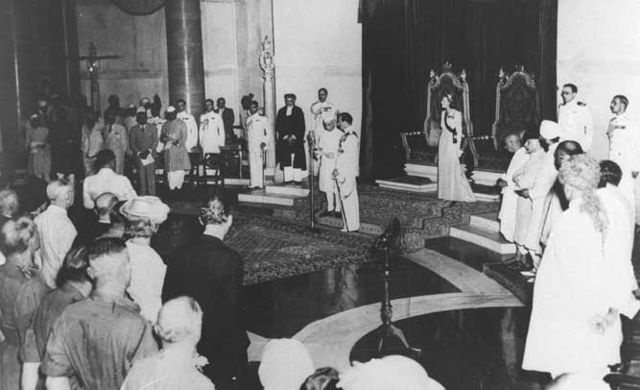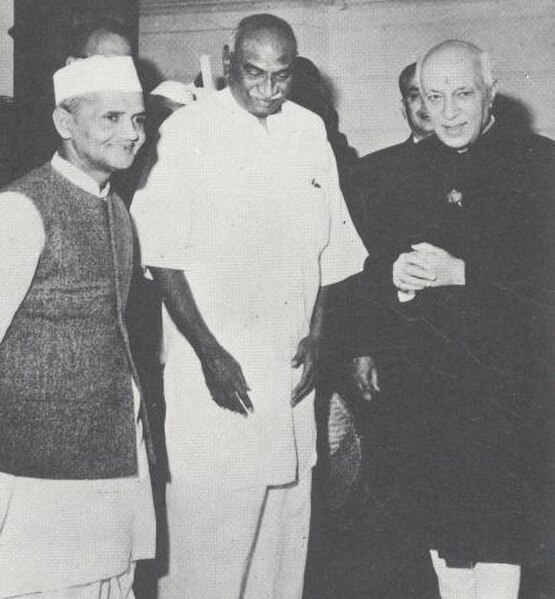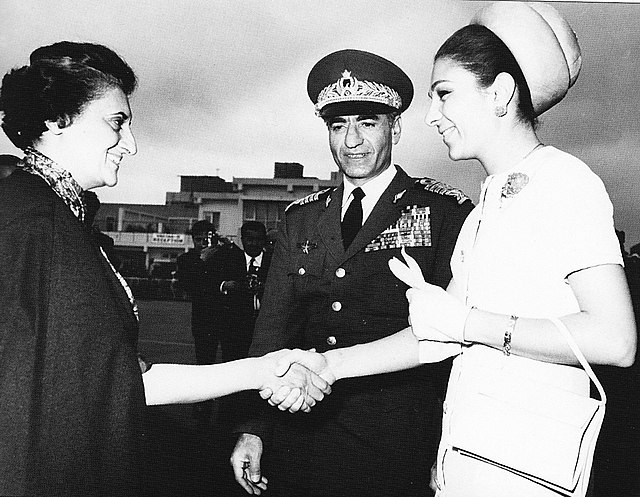Atal Bihari Vajpayee was an Indian politician and poet who served three terms as the 10th Prime Minister of India, first for a term of 13 days in 1996, then for a period of 13 months from 1998 to 1999, followed by a full term from 1999 to 2004. He was the first non-Indian National Congress prime minister to serve a full term in the office. Vajpayee was one of the co-founders and a senior leader of the Bharatiya Janata Party. He was a member of the RSS, a Hindu nationalist volunteer organisation. He was also a Hindi poet and a writer.
Official portrait, 1998
Vajpayee addressing a political rally in 1977.
Foreign Minister Vajpayee (far right) and Prime Minister Morarji Desai (third from right, front row) with US President Jimmy Carter during his 1978 visit to India.
Prime Minister Vajpayee with Indian troops and other dignitaries at Kargil after the war in 1999
The prime minister of India is the head of government of the Republic of India. Executive authority is vested in the prime minister and his chosen Council of Ministers, despite the president of India being the nominal head of the executive. The prime minister has to be a member of one of the houses of bicameral Parliament of India, alongside heading the respective house. The prime minister and their cabinet are at all times responsible to the Lok Sabha.
Lord Mountbatten swears in Jawaharlal Nehru as the first Prime Minister of India on 15 August 1947.
Lal Bahadur Shastri, K. Kamaraj, and Nehru, ca. 1963
Shah Mohammad Reza Pahlavi and Shahbanu Farah Pahlavi of Iran being received by prime minister Indira Gandhi at New Delhi airport, 1970
Queen Beatrix of the Netherlands, left with PM Rajiv Gandhi, Prince Claus, and Sonia Gandhi, The Hague, 1985








